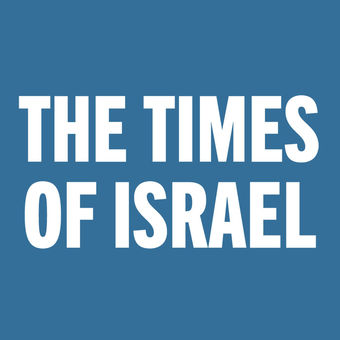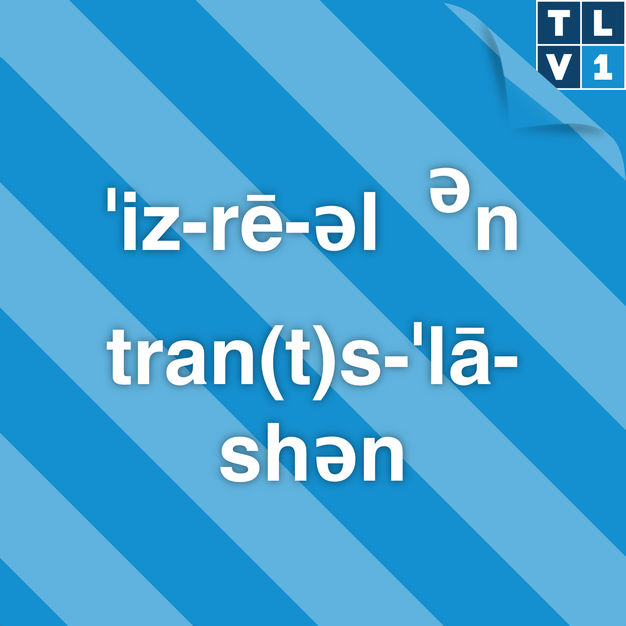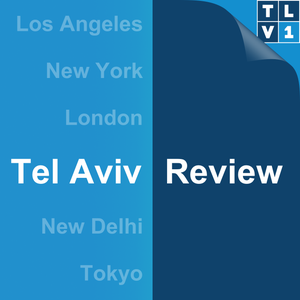
Times of Israel Podcast
Times of Israel Podcast
The podcast platform of The Times of Israel. Covering developments in Israel, the Middle East and around the Jewish world.
- 29 minutes 26 secondsWhat Matters Now to two Jewish student leaders at Columbia: 'Intifada' on campus
Welcome to What Matters Now, a weekly podcast exploring one key issue currently shaping Israel and the Jewish World, hosted by deputy editor Amanda Borschel-Dan.
Police cleared 30 to 40 people from inside Columbia University’s Hamilton Hall on Tuesday night after protesters against Israel occupied the administration building in New York earlier in the day. Hundreds of New York Police Department officers acted after the school’s president said there was no other way to ensure safety and restore order on campus and sought help from the police.
The confrontation occurred more than 12 hours after the demonstrators took over Hamilton Hall shortly after midnight Tuesday, spreading their reach from an anti-Israel tent encampment elsewhere on the grounds that’s was there for nearly two weeks.
This week we speak with two Jewish student leaders from Columbia University, Eden Yadegar, the president of Columbia's chapter of Students Supporting Israel, and Elisha H. Baker, a senior editor at the Columbia Political Review.
We speak about the pro-Palestine encampment that has sparked a wave of copycat protests throughout campuses in the United States. But we also set the scene on the Columbia campus, which led up to these protests and hear about an atmosphere in which latent antisemitism was released from its cage after the October 7 Hamas onslaught on southern Israel in which terrorists massacred 1,200 and took 253 individuals hostage.
We also hear about how Yadegar, after speaking at a congressional roundtable about on-campus antisemitism organized by the House Committee on Education and the Workforce alongside students from eight other universities, returned to campus to face derision.
So this week, we ask Columbia University students Eden Yadegar and Elisha H. Baker, what matters now?
What Matters Now podcasts are available for download on Apple Podcasts, Spotify, YouTube or wherever you get your podcasts. This episode was produced by the Pod-Waves.
IMAGE: Columbia University students Eden Yadegar and Elisha H. Baker lead songs in support of Israel on October 12, 2023 at the Columbia University campus in New York. (courtesy)
See omnystudio.com/listener for privacy information.
2 May 2024, 12:01 pm - 38 minutes 29 secondsWhat Matters Now to Haviv Rettig Gur: Is it wise for US to blacklist IDF unit?
Welcome to What Matters Now, a weekly podcast exploring one key issue currently shaping Israel and the Jewish World, hosted by deputy editor Amanda Borschel-Dan.
This week, we speak with The Times of Israel's senior analyst Haviv Rettig Gur about the controversial Netzah Yehudah battalion that is on the docket for blacklisting by the United States under the 1997 Leahy Law.
In August 2022, Israeli troops from the religious Netzah Yehuda battalion were filmed beating two Palestinian detainees in the West Bank in a video posted to the TikTok video-sharing site. Three soldiers were seen repeatedly kicking two Palestinian men near Ramallah as a fourth soldier stands nearby. They were suspended and investigated.
This well-publicized beating came months after the death of Omar As’ad, a 78-year-old Palestinian-American who died after being detained, handcuffed, blindfolded, and later abandoned in near-freezing conditions by soldiers of the battalion.
As Washington is increasingly clamping down on extremist Jewish settler violence in the West Bank, the State Department probed Netzah Yehuda and several of the other units in the Israeli security forces for well over a year due to alleged human rights violations.
While the State Department looks into thousands of allegations of Leahy Law violations each year, it created a special panel known as the Israel Leahy Vetting Forum that exclusively vets allegations against the IDF and Israel Police due to the political sensitivity of the issue.
So this week in which an IDF unit may be defunded by the United States, we ask Haviv Rettig Gur, what matters now?
With contributions from Jacob Magid.
What Matters Now podcasts are available for download on Apple Podcasts, Spotify, YouTube or wherever you get your podcasts. This episode was produced by the Pod-Waves.
IMAGE: Israeli soldiers from the Netzah Yehuda Battalion patrol near the Israeli-Gaza border, October 20, 2023. (Yonatan Sindel/Flash90)
See omnystudio.com/listener for privacy information.
25 April 2024, 11:46 am - 33 minutes 44 secondsWhat Matters Now to Mideast analyst Avi Issacharoff: Iran can have nukes in 6 months
Welcome to What Matters Now, a weekly podcast exploring one key issue currently shaping Israel and the Jewish World, hosted by deputy editor Amanda Borschel-Dan.
In a post-October 7 Israeli reality, is any new security threat outside the realm of imagination?
This week, when over 300 projectiles were sent from Iran to Israel, we pose this question to journalist and hit Israeli drama "Fauda" co-creator Avi Issacharoff.
Legions of fans around the world know of Issacharoff’s fiction writing from the popular television series, loosely based on his experiences in the IDF’s elite Duvdevan unit, that is written alongside "Fauda" star Lior Raz. (We'll hear a story of their post-October 7 real-life bravery during our conversation.)
But Issacharoff is first and foremost a long-time, die-hard journalist and analyst of the Arab world -- one who has put his life on the line in the past to cover a story.
We pick Issacharoff’s brain as we unpick the knotty situation Israel is currently facing with enemies on our borders, and Iran as a puppet master who is coming increasingly closer to a nuclear bomb.
So this week, we ask journalist Avi Issaharoff, What Matters Now.
What Matters Now podcasts are available for download on Apple Podcasts, Spotify, YouTube or wherever you get your podcasts. This episode was produced by the Pod-Waves.
IMAGE: Mideast analyst Avi Issacharoff, one of the co-creators of the Israeli TV drama 'Fauda,' (Photo by JACK GUEZ / AFP)
See omnystudio.com/listener for privacy information.
18 April 2024, 11:14 am - 44 minutes 53 secondsWhat Matters Now to David Horovitz: The conflicts of war coverage
Welcome to What Matters Now, a weekly podcast exploring one key issue currently shaping Israel and the Jewish World, hosted by deputy editor Amanda Borschel-Dan.
Speaking in our Jerusalem office, The Times of Israel editor David Horovitz offers a rare in-depth look at the professional challenges and personal conflicts he’s faced in covering the war against Hamas for the past half year.
Horovitz gives a candid survey at what it is to run a site that, following the surprise October 7 Hamas infiltration of southern Israel and massacre of 1,200 people, jumped 600% in its readership to become, according to news site Press Gazette, the fastest-growing news website in the world in October and November.
The Times of Israel's 24/7 coverage remains unabated as we mark six months of war.
So this week we ask Times of Israel editor David Horovitz, what matters now.
What Matters Now podcasts are available for download on Apple Podcasts, Spotify, YouTube or wherever you get your podcasts. This episode was produced by the Pod-Waves.
IMAGE: David Horovitz, editor, The Times of Israel (Amanda Borschel-Dan/ToI)
See omnystudio.com/listener for privacy information.
11 April 2024, 7:38 pm - 45 minutes 14 secondsWhat Matters Now to Micah Goodman: This is a war of independence for Israelis and Gazans
Welcome to What Matters Now, a weekly podcast exploring one key issue currently shaping Israel and the Jewish World, hosted by deputy editor Amanda Borschel-Dan.
In six months of war, Israel has systematically broken down Hamas’s battalions in the Gaza Strip. But in achieving terrible success in its aim to defang the terrorist army, the Jewish state is no longer seen on the world stage as the attacked underdog David, but increasingly reviled as a cruel Goliath.
According to many in the West, it is up to Israel to immediately stop the war regardless of Hamas’s clear ability to regroup and again attack, just as the terror group has publicly vowed to do.
This week, What Matters Now again speaks with public intellectual and philosopher Dr. Micah Goodman. We revisit the raw conversation we held six months ago, mere days after Hamas’s murderous attack, and see just how right Goodman’s predictions were.
In our conversation this week, Goodman explains the completely different framings of the war held by the West and Israel, and how they influence both sides’ actions and words.
And we hear about how Israelis, forever changed by the war, are now standing at a crossroads. Can civil society regroup and reemerge from this war stronger, saner and more united?
Goodman spent the past six months writing his seventh best-selling book, "Hayom Hashmini" ("The Eighth Day"), which was published in late March. He sees the end of this war as an opportunity for restructuring and revitalizing Israelis, as long as they embrace a new paradigm.
So this week, six months to the war, we ask Dr. Micah Goodman, what matters now.
What Matters Now podcasts are available for download on Apple Podcasts, Spotify, YouTube or wherever you get your podcasts. This episode was produced by the Pod-Waves.
IMAGE: Philosopher and public intellectual Dr. Micah Goodman. (Yonit Schiller)
See omnystudio.com/listener for privacy information.
4 April 2024, 6:59 pm - 36 minutes 18 secondsWhat Matters Now to mourning mother Hannah Wacholder Katsman: Personal & national grief
Welcome to What Matters Now, a weekly podcast exploration of one key issue shaping Israel and the Jewish World — right now.
Days after his 32nd birthday, on Saturday, October 7, Hayim Katsman was killed by terrorists from Gaza in his neighbor’s home in Kibbutz Holit while shielding her with his body.
His body was identified and the family was notified the next day. He was buried on Thursday of that week.
Born to American immigrant parents and one of six children, Hayim was a scholar of philosophy and earned a PhD in political science. He was active in several local peace organizations. He was also a musician, mechanic and a gardener.
Hayim’s mother, Hannah Wacholder Katsman, a writer and women’s rights activist, joined Amanda Borschel-Dan this week in The Times of Israel’s Jerusalem office for this week’s What Matters Now.
As Hannah wrote in an essay for The Times of Israel, “I realized early on that because Hayim’s death was part of our national story, the mourning would be public.”
We hear about her way of openly mourning and how it has helped others with their national grief and of the continuing ripple effect of Hayim’s murder.
As the world increasingly forgets what spawned the ongoing war in Gaza, we focus on one son and ask his mother, what matters now.
What Matters Now podcasts are available for download on Apple Podcasts, Spotify, YouTube or wherever you get your podcasts. This episode was produced by the Pod-Waves.
Check out the previous What Matters Now episode:
https://omny.fm/shows/times-will-tell/what-matters-now-to-haviv-rettig-gur-is-netanyahu
IMAGE: Hayim Katsman, left, and his mother Hannah Wacholder Katsman, in Tel Aviv in 2018. (Tamar Abramson)
See omnystudio.com/listener for privacy information.
28 March 2024, 6:43 pm - 31 minutes 31 secondsWhat Matters Now to Haviv Rettig Gur: Is Netanyahu an obstacle to victory?
Welcome to What Matters Now, a weekly podcast exploration of one key issue shaping Israel and the Jewish World — right now.
In his US Senate floor speech last week, Senate Majority leader Chuck Schumer called for new Israeli elections as the war winds down and branded Israeli Prime Minister Benjamin Netanyahu as one of four obstacles to peace along with Hamas, the Israeli far-right and Palestinian Authority President Mahmoud Abbas.
Throughout the past week, Times of Israel podcast listeners have shared their views on Schumer's speech -- and offered overwhelming support for the most senior elected Jewish politician's "hard truths."
For context, a 2020 Pew Research Center survey shows that among the US population, Jews are among the most consistently liberal and Democratic groups with about 70 percent voting Democrat. As Netanyahu increasingly becomes a partisan issue, the prime minister is also increasingly the face of all US Jews detest in how Israel is prosecuting the war in Gaza.
This week on What Matters Now, ToI senior analyst Haviv Rettig Gur explains how, to a very strong degree, most Israelis don't disagree with Schumer on several of the points made in his 45-minute speech.
However, in many key areas, Israelis sharply diverge from liberal US Jewry's thinking, including the need for humanitarian aid in Gaza even as the Israeli hostages are still held by Hamas.
A distrust of Netanyahu is hampering the war effort -- especially on the international stage -- but also fraying domestic cohesion, argues Rettig Gur.
So this week, we ask Haviv Rettig Gur, what matters now.
What Matters Now podcasts are available for download on Apple Podcasts, Spotify, YouTube or wherever you get your podcasts. This episode was produced by the Pod-Waves.
IMAGE: Prime Minister Benjamin Netanyahu speaks during a gathering of Jewish leaders at the Museum of Tolerance in Jerusalem, February 18, 2024. (AP Photo/Ohad Zwigenberg)
See omnystudio.com/listener for privacy information.
21 March 2024, 2:42 pm - 28 minutes 39 secondsWhat Matters Now to Haviv Rettig Gur: Hamas starves Gazans as a war tactic
Welcome to What Matters Now, a weekly podcast exploration of one key issue shaping Israel and the Jewish World — right now.
On Tuesday, aid for 25,000 people reached Gaza City in the northern Gaza Strip for the first time in weeks, according to the UN World Food Program.
“With people in northern Gaza on the brink of famine, we need deliveries every day and we need entry points directly into the north,” tweeted the UN agency after the aid's successful entry.
Israel’s Coordinator of Government Activities in the Territories (COGAT) confirmed that a convoy of six aid trucks entered the northern Gaza Strip through the new military road. The route, stretching from the border near the southern community of Be’eri to the coast of the Strip, is used by the Israel Defense Forces to carry out operations in northern and central Gaza.
The successful delivery of the aid was “part of an experimental pilot in order to prevent Hamas from taking over the aid,” said COGAT.
UN World Food Program chief Cindy McCain said on Monday that WFP had paused aid deliveries for three weeks “for the safety of our staff and due to the complete breakdown of law and order.”
As Gazan gunmen raid aid trucks and abscond with necessary supplies, what is Israel's legal obligation to protect the conveys?
This week, as humanitarian aid is being brought into the Gaza Strip by land, air and sea, we ask Haviv Rettig Gur, what matters now.
What Matters Now podcasts are available for download on Apple Podcasts, Spotify, YouTube or wherever you get your podcasts. This episode was produced by the Pod-Waves.
IMAGE: File - Yahia al-Sinwar, the Gaza Strip chief of the Palestinian Islamist Hamas movement, greets supporters as he arrives to attend a rally marking Al-Quds (Jerusalem) Day, April 14, 2023. (Mohammed Abed / AFP)
See omnystudio.com/listener for privacy information.
14 March 2024, 1:10 pm - 35 minutes 50 secondsWhat Matters Now to Haviv Rettig Gur: Campus antisemitism makes new Zionists
Welcome to What Matters Now, a weekly podcast exploration into one key issue shaping Israel and the Jewish World — right now.
ToI's senior analyst Haviv Rettig Gur recently gave a series of lectures at North American college campuses. At some, including Harvard, his lecture was met with a performative walk-out from a contingent of pro-Palestinian protesters.
Since Hamas's October 7 murderous onslaught, accounts of campus antisemitism have filled the pages of newspapers, from The Times of Israel and to mainstream international media.
On this week's What Matters Now, Rettig Gur and host Amanda Borschel-Dan look at a series of data sets, analyses and essays on the topic of campus antisemitism to get a fuller picture of what's happening on the ground.
One large-scale study was started in August 2023 by the ADL Center for Antisemitism Research (CAR), in partnership with Hillel International and facilitated by College Pulse. The groups conducted a nationally representative survey of over 3,084 American college students -- of which 527 were Jewish -- from 689 campuses in the United States to assess the climate on campus for Jewish students.
Following the October 7 terror attacks, the researchers conducted a follow-up survey with the same respondents in November 2023. We learn how the campus climate changed between the first and second rounds of polling.
So this week, we focus on antisemitism on campus and ask Haviv Rettig Gur, what matters now.
What Matters Now podcasts are available for download on Apple Podcasts, Spotify, YouTube or wherever you get your podcasts. This episode was produced by the Pod-Waves.
ILLUSTRATIVE IMAGE: Demonstrators rally during a pro-Palestinian, anti-Israel rally outside the Israeli Embassy in Washington, March 2, 2024. (AP Photo/Jose Luis Magana)
See omnystudio.com/listener for privacy information.
7 March 2024, 2:23 pm - 32 minutes 26 secondsWhat Matters Now to Haviv Rettig Gur: Haredim have to defend Israel, too
Welcome to What Matters Now, a weekly podcast exploration into one key issue shaping Israel and the Jewish World — right now.
This year, in what is reportedly a record-high number, some 66,000 young men from the ultra-Orthodox community received a deferral from military service. Of those tens of thousands of military-age men, following Hamas's murderous October 7 onslaught on Israel and the war it launched, 540 men voluntarily signed up for military service.
On Monday, the High Court of Justice determined that the state has until March 24 to explain why its June 2023 resolution -- which instructed the IDF not to draft ultra-Orthodox yeshiva students for nine months -- is legal.
The court determined in 1998 that executive action cannot be used as a legal basis for something so far-reaching as military service exemptions for an entire sector of the population. But of course, in June 2023, the government appears to have done just that.
That resolution expires on March 31.
Will Israel's haredi society begin to shoulder the national defense burden? And what does the IDF need to do to create the proper conditions for increased religious conscription?
And if the community is not willing to take up arms, what are other alternatives that it could take on to serve the nation?
So this week, as all eyes are on the question of ultra-Orthodox conscription, we ask Haviv Rettig Gur, what matters now.
What Matters Now podcasts are available for download on Apple Podcasts, Spotify, YouTube or wherever you get your podcasts. This episode was produced by the Pod-Waves.
IMAGE: ToI senior analyst Haviv Rettig Gur. (courtesy)
See omnystudio.com/listener for privacy information.
29 February 2024, 4:07 pm - 30 minutes 54 secondsWhat Matters Now to Ksenia Svetlova: Russia's new position on the global 'Risk' board
Welcome to What Matters Now, a weekly podcast exploration into one key issue shaping Israel and the Jewish World — right now.
Two years after Russia invaded Ukraine, the conflict is giving all appearances of turning into a "forever war." But in other parts of the world, Russia's influence has arguably grown.
This week on What Matters Now, former MK Ksenia Svetlova, an expert in the Middle East and Russia, speaks about how Russia's forces remain throughout the Middle East and how its reach has deepened in Africa.
Born in Moscow, Svetlova immigrated to Israel at the age of 14. She is a journalist and analyst and was a member of the 20th Knesset on behalf of the Zionist Union coalition.
Unlike most Western countries, Russia sees Hamas as a legitimate political player on the global stage. Next week, Moscow is potentially set to host a peace summit in the hopes of a reconciliation between the terrorist rulers of Gaza and the leadership of the West Bank's Palestinian Authority. Why?
Svetlova also shares how Russian citizens are faring after two years of Western sanctions.
So this week, after two years of war in Ukraine, we ask Ksenia Svetlova, what matters now.
What Matters Now podcasts are available for download on Apple Podcasts, Spotify, YouTube or wherever you get your podcasts.
IMAGE: Former MK Ksenia Svetlova, an expert on the Middle East and Russia. (courtesy)
See omnystudio.com/listener for privacy information.
22 February 2024, 12:40 pm - More Episodes? Get the App
- http://www.timesofisrael.com
- English
Your feedback is valuable to us. Should you encounter any bugs, glitches, lack of functionality or other problems, please email us on [email protected] or join Moon.FM Telegram Group where you can talk directly to the dev team who are happy to answer any queries.
 The Land of Israel Network
The Land of Israel Network
 Israel News Talk Radio
Israel News Talk Radio
 Israel in Translation
Israel in Translation
 Tel Aviv Review
Tel Aviv Review